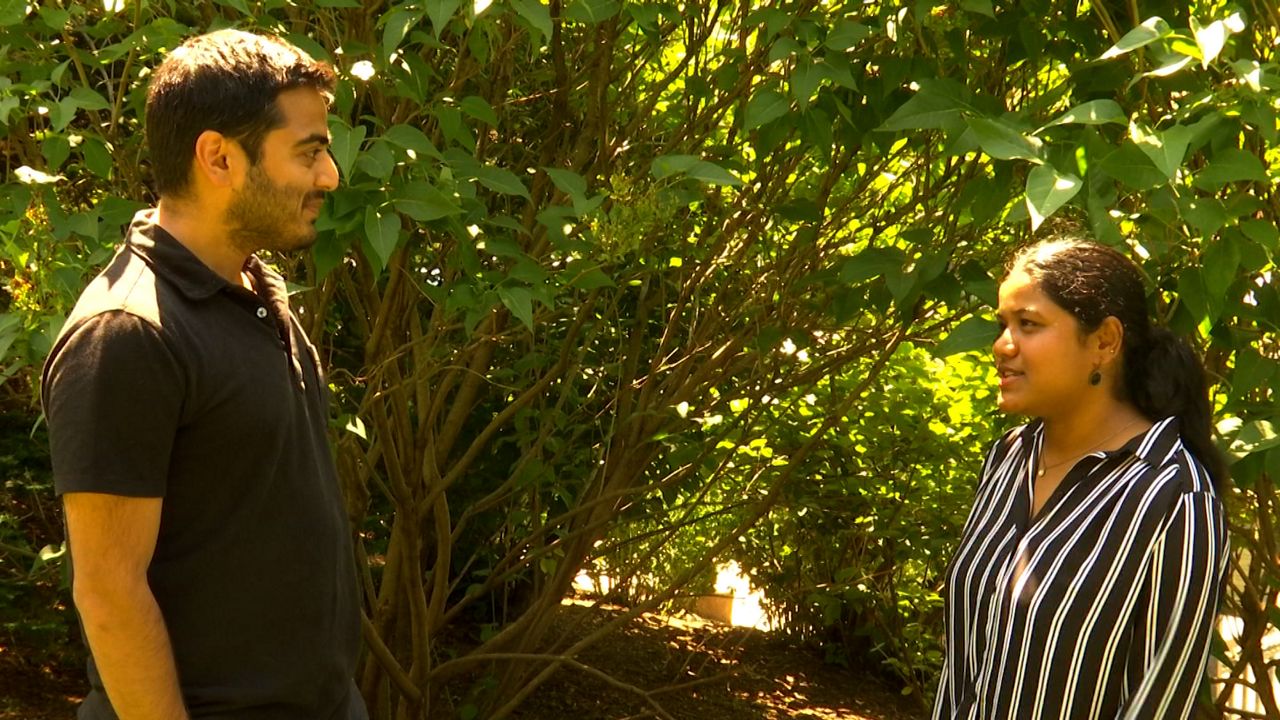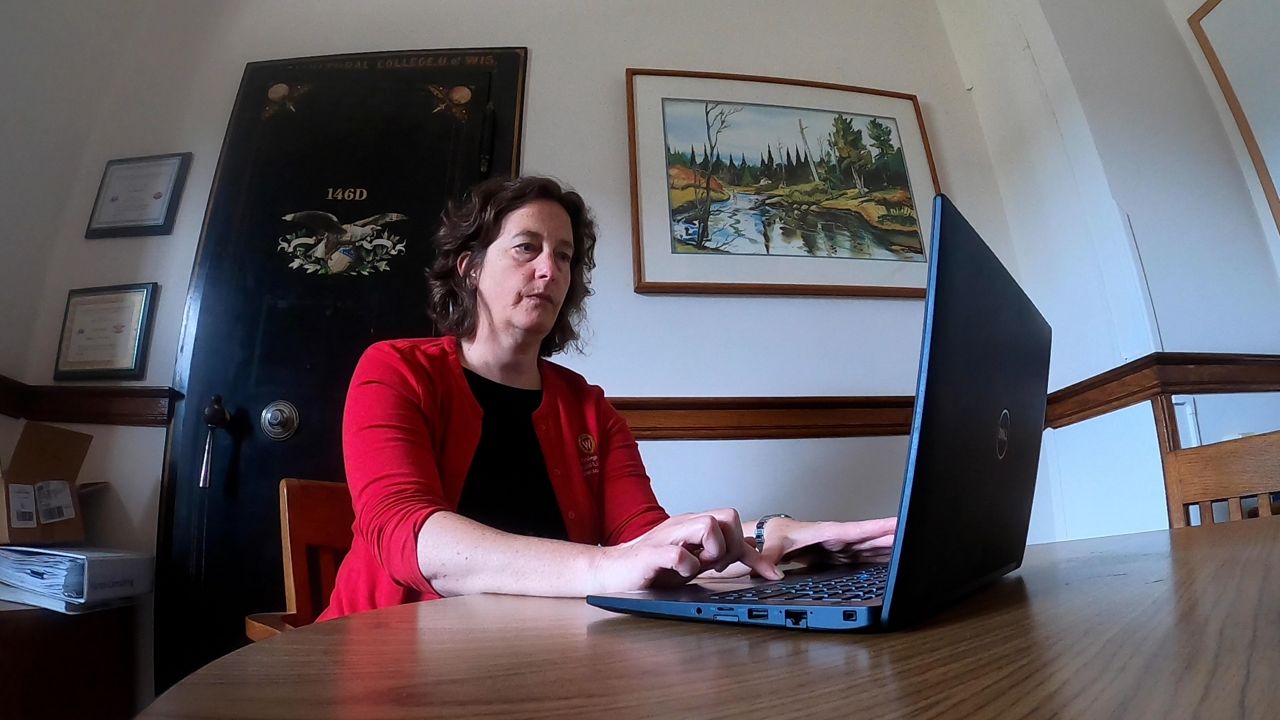MADISON, Wis. — Aakash Varsha Swaminathan and Ashwin Maheshwari are in different University of Wisconsin departments and have never had a class together, but just finished being part of the same project aimed at inventions to help the dairy industry.
“I kind of felt like I needed a change to kind of experience the industry side of things,” Swaminathan said, who is a PhD student in the UW-Madison department of food sciences.
Swaminathan works a lot with dairy in her PhD program, but decided participating in the Dairy Innovation Hub's Student Challenge offered a unique opportunity.
“It's very industry-oriented and if you find a solution to that problem it can get easily implemented,” Swaminathan said. “So that was kind of very attractive to me, and it's pretty exciting to work on such projects for sure.”
Students at the Dairy Innovation Hub's three UW system campuses — Madison, Platteville and River Falls — participated in the challenge. They didn't all have a dairy background either.

“Little did I know, I was the only MBA student there, but next thing I know I was learning about the whole dairy industry,” said Ashwin Maheshwari, an MBA candidate at UW-Madison.
The project's ideas were aimed at three topics: Improving shelf life of dairy products, utilizing tech or robotics to improve operations and encouraging dairy consumption among Wisconsin students.
“There are few better resources for innovative ideas in Wisconsin than the students at the UW System campuses,” said Heidi Zoerb, an asociate dean for external relations at the UW-Madion College of Agriculture and Life Sciences.
Students worked as part of teams to come up with ideas and worked with academic and industry professionals to refine them. They then virtually pitched them to a panel including judges from the university and Hyper Innovation, a Madison area innovation agency that partnered on the competition.

The challenge was all part of the Dairy Innovation Hub's goal to help the dairy industry and its farmers. The Hub receives $7.8 million annually from the state to work on issues brought up by the Dairy Task Force 2.0.
“Prices have been low in the dairy industry, and dairy farmers across Wisconsin have really been struggling as a result,” Zoerb said.
For the challenge, Students came up with seven pitches in total, including things like a cooling pouch to replace milk cartons, a septum ring to monitor cow health, and bio-actives in yogurt to extend shelf life.
“Seeing students actually working on real dairy innovations is the most rewarding part of this whole project,” Zoerb said.

Maheshwari worked on the health monitoring septum ring project, and also worked on a project that turned bar codes on dairy products into a scan-able game kids could play on phones and other devices. He said the whole process was very educational.
“It was almost like a class in a way, like an extra course,” Mahewshari said.
Swaminathan's food science background lead her to using bio-actives to extend yogurt shelf life. All of the groups were given resources by the university to take the ideas to market.
“If you are more interested to continue this project you kind of work from there, you execute the plan that you already have,” Swaminathan said.



